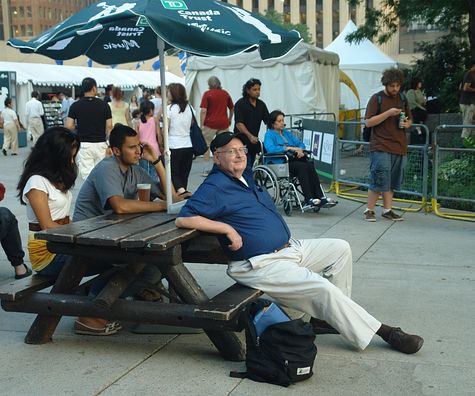
I made a tactical error by not buying tickets in advance, so the tent was sold out. Andy and I were sitting at a picnic table way out on Nathan Phillips Square, too far to see, but easily close enough for amplified sound.
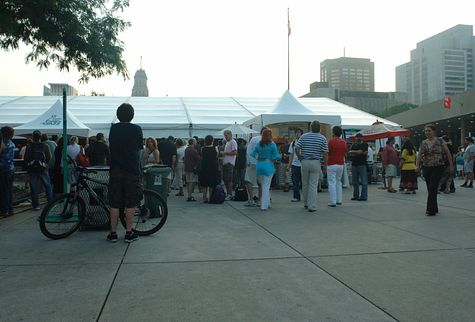
I don’t understand why the jazz festival organizers decided to book three great New York-based guitar players on the same bill. I would have paid to see them separately, on three different nights. John Abercrombie was on first. Zooming out my camera to maximum (432 mm), I photographed images that I couldn’t see with my unaided eyes.
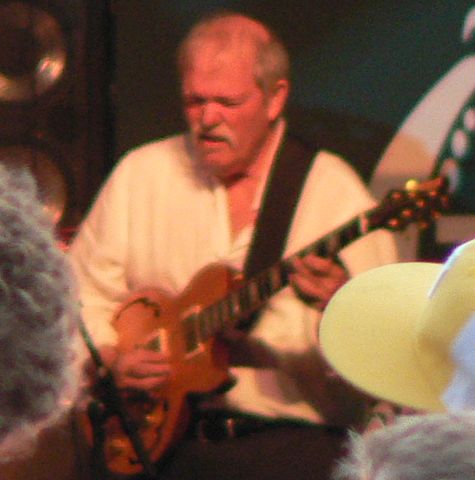
Second on the bill, Mike Stern was next. He played a great set, but I’ had seen him play longer at the 55 Bar in NYC, 2 weeks earlier.
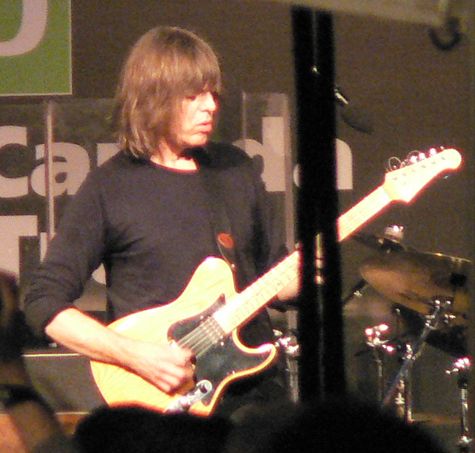
On bass was Chris Minh Doky, who I’ve never seen play live, before.
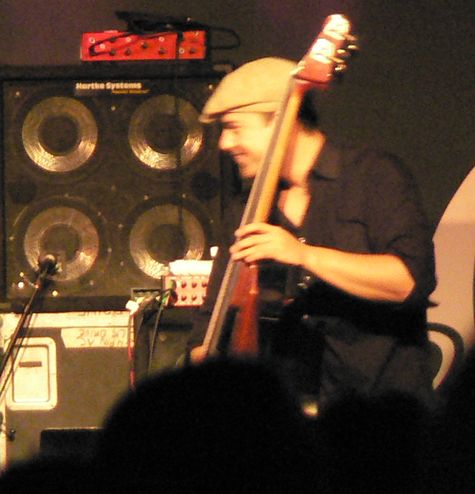
After dark, John Scofield came on as the third great guitarist on the bill.
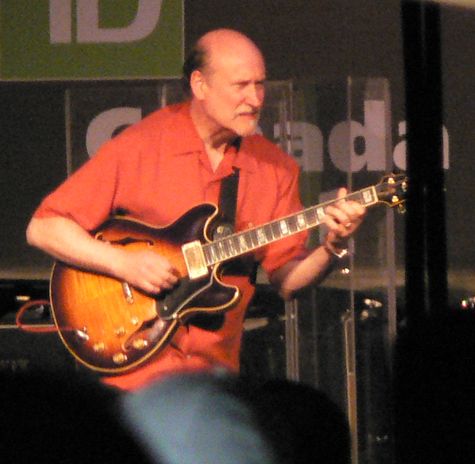
Another player that I haven’t seen previous — Steve Swallow — played bass.
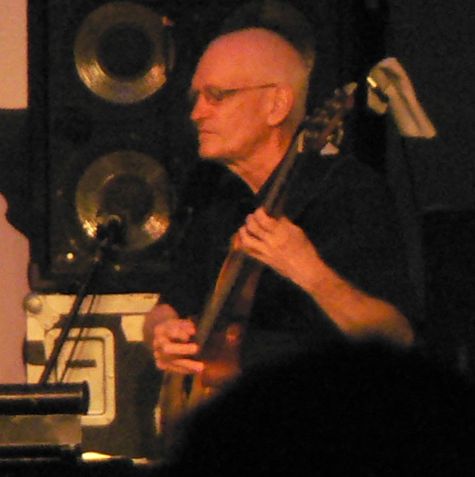
It was a nice summer night. I didn’t stay out too late, and walked to the other side of Toronto City Hall to pick up my bike to ride home.
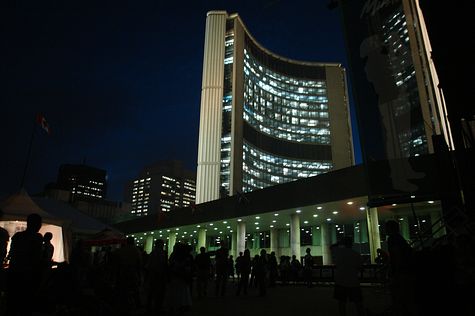
A few nights earlier, at The Rex, I saw Donny McCaslin playing with Hans Glawischnig and drummer Johnathan Blake. I had seen the trio earlier in the year in NYC.
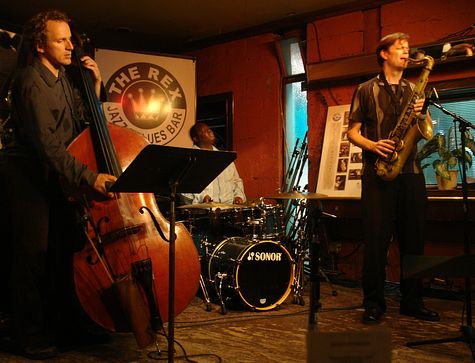
I had seen Donny McCaslin play with a different group of sidemen just barely a few days earlier in NYC. One reason for the repeat visit was for Ryan to have the opportunity to see musicians playing live.
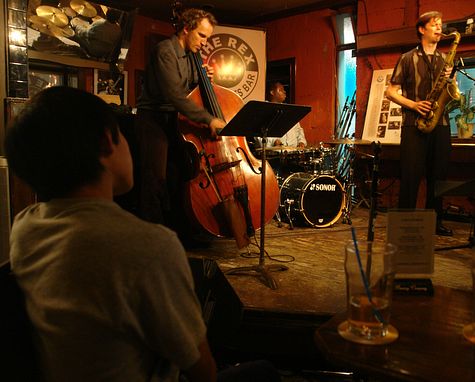
A few nights later, in an new venue for the jazz festival, the Diesel Playhouse, Lizz Wright performed on an evening when Evil Dead — The Musical wasn’t playing.
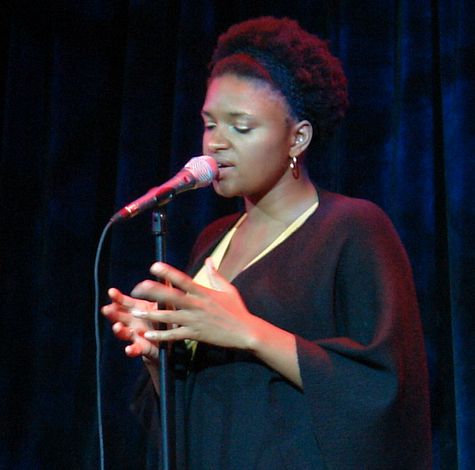
Diana came to this show with me because (a) the music was more mellow than most of the jazz I hear, and (b) the venue was soft seats with easy sightlines.

My one disappointment for this year was the cancellation of the Esbjorn Svensson Trio, due to the tragic death of the pianist a few weeks earlier. They’re currently one of my favourite bands, and I’ll never have the opportunity to see them perform live.


